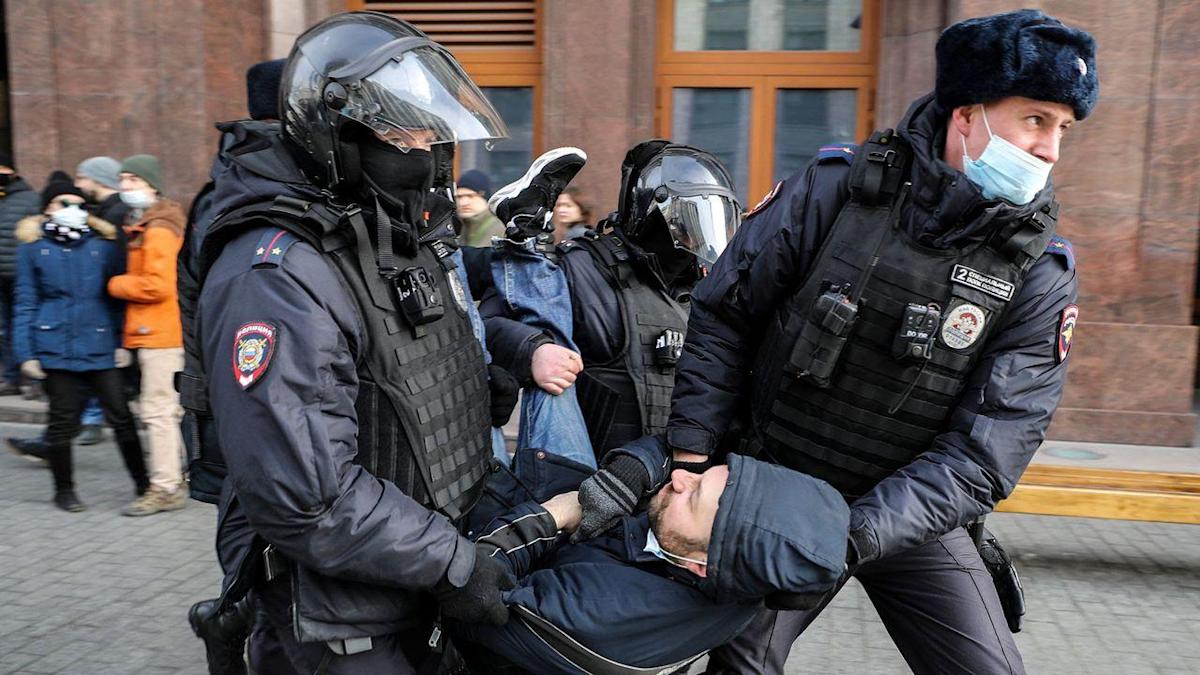
Two weeks ago, middle-class Russians could work at and buy from the biggest global firms, plan holidays in the West, get their news from vibrant (if embattled) independent outlets, and post as they pleased on social media.
State of play: With a new law promising prison time for journalists who so much as call Vladimir Putin’s war a “war,” foreign and domestic outlets are ceasing operations. Western firms are leaving. Social media platforms are disappearing. Borders are tightening. Protesters are being jailed en masse.
Stay on top of the latest market trends and economic insights with Axios Markets. Subscribe for free
-
“It’s over,” says Alexander Baunov, a senior fellow at Carnegie Moscow. “All the vestiges of liberalism will be purged.”
“The rules were clear and they are not anymore,” Baunov says. “We can’t say what is dangerous and what is not. You don’t know what sort of repression you can meet for the things that were tolerated before.”
-
Educated Russians knew they were living in an autocracy, he says. Many had made peace with that. But they never expected to once again live in the type of country where “portraits of the Great Leader” hang on the walls.
-
People who work in journalism, the arts or for global firms are watching their career prospects evaporate. Russians have fled the country by the tens of thousands.
-
Educated Russians have long discussed the conditions under which they might emigrate, he says. For many, border closures, social media shutdowns and “the deglobalization of Russia” were their red lines, he says. Others simply feel that they can’t live as normal in a country that is attacking its neighbor.
Yes, but: That is, of course, a subset of the population. One independent poll cited in the Washington Post puts approval for the war at 58%, with 23% disapproving.
-
Many Russians never shopped at IKEA, drank Starbucks coffee or watched Netflix, and thus won’t feel the shift as keenly.
-
When the financial sanctions start to bite, many will be prepared to accept the Kremlin line that they are victims of economic warfare from the West that has nothing to do with the war in Ukraine, Baunov says.
-
Sanctions have already pervaded daily life and conversations in a way they never did in 2014, but he’s not expecting them to push more Russians into the street. “The fear of repression is much higher than the discontent the sanctions make.”
But Russians aren’t entirely cut off from the West, or from the truth about the war.
-
Telegram, the widely used social media app, is still operational. Online, Russians are flocking to virtual private networks.
-
But Putin could still be fairly confident that when Russian forces bombed a maternity hospital in Mariupol — just 35 miles from Russia — only a sliver of the population would ever see the gruesome images, or believe their country was responsible.
The bottom line: The past two weeks were in some ways a step back in time. Coca-Cola, McDonald’s and Disney are leaving. A new Iron Curtain is taking shape.
Like this article? Get more from Axios and subscribe to Axios Markets for free.




